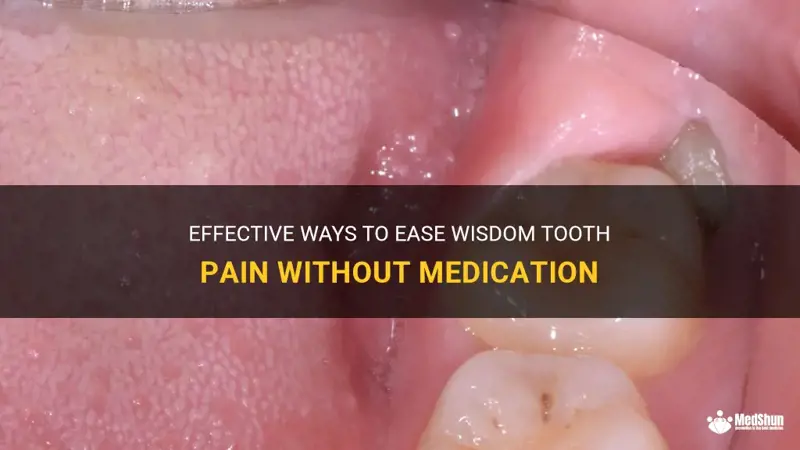12+ Heat Sensitive Tooth Solutions To Ease Pain

Heat sensitive teeth can be a debilitating condition, causing sharp pains or aching sensations when consuming hot foods and beverages. This sensitivity is often a sign of underlying issues, such as tooth decay, gum recession, or cracked teeth, which can expose the dentin and nerve endings, leading to discomfort. Understanding the causes and exploring solutions are crucial steps in managing and potentially eliminating tooth sensitivity.
Causes of Heat Sensitive Teeth
Before diving into the solutions, it’s essential to understand why teeth may become sensitive to heat. Common causes include:
- Tooth Decay: Cavities can expose the dentin, a softer layer of tissue beneath the enamel, leading to sensitivity.
- Gum Recession: When gums pull back, they can expose the roots of teeth, which are more sensitive due to the lack of protective enamel.
- Cracked Teeth: A crack in a tooth can allow hot substances to reach the nerve, causing pain.
- Tooth Grinding: Grinding or clenching teeth can wear down the enamel, making teeth more sensitive.
- Gingivitis or Periodontal Disease: Inflammation of the gums can cause them to pull away from the teeth, exposing sensitive areas.
Solutions to Ease Heat Sensitivity
Fortunately, there are several solutions that can help alleviate heat sensitivity in teeth, ranging from simple home remedies to professional dental treatments.
1. Desensitizing Toothpaste
Using a toothpaste specifically designed for sensitive teeth can help block the dentin tubules, reducing sensitivity over time. These toothpastes contain ingredients like potassium nitrate or strontium chloride.
2. Fluoride Mouthwash
A mouthwash containing fluoride can help strengthen tooth enamel, reducing sensitivity. Fluoride has been proven to be beneficial in the prevention of tooth decay and can help remineralize teeth.
3. Avoidance of Acidic Foods
Consuming acidic foods and beverages can erode tooth enamel, making teeth more sensitive. Limiting or avoiding such items can help reduce sensitivity.
4. Good Oral Hygiene
Maintaining good oral hygiene through regular brushing and flossing can help prevent conditions that lead to sensitivity, such as tooth decay and gum disease.
5. Dental Sealants
Applying dental sealants to the chewing surfaces of teeth can protect them from decay and reduce sensitivity. While commonly used for children, sealants can also be beneficial for adults.
6. Gum Grafting
For individuals with gum recession, a gum graft can cover exposed roots, reducing sensitivity. This is a surgical procedure where tissue is taken from another part of the mouth and grafted to the affected area.
7. Root Canal
In cases where heat sensitivity is due to an infected pulp, a root canal may be necessary. This procedure involves removing the pulp, cleaning the area, and filling it to prevent further infection.
8. Bonding
For cracked teeth, dental bonding can help repair the tooth and reduce sensitivity. A resin material is applied to the tooth and hardened with a special light.
9. Crowns
In more severe cases, a dental crown may be recommended to cover the entire tooth, protecting it from further decay or damage.
10. Sensitivity-Reducing Treatments
Some dentists offer in-office treatments that can help reduce sensitivity, such as applying a varnish or a special gel to the teeth.
11. Laser Treatment
Laser therapy can be used to reduce tooth sensitivity by sealing the dentin tubules. This is a relatively new approach and may not be available at all dental practices.
12. Dietary Changes
Making dietary changes, such as reducing sugar intake and avoiding very hot foods, can also help manage tooth sensitivity.
Additional Strategies
- Regular Dental Check-Ups: Visiting the dentist regularly can help identify and address issues before they lead to sensitivity.
- Soft-Bristled Toothbrush: Using a soft-bristled toothbrush can help prevent gum recession and wear on the enamel.
- Mouthguard: If you grind your teeth, wearing a mouthguard at night can help protect them from further damage.
Conclusion
Heat sensitivity in teeth is a common issue but one that can often be managed or treated with the right approach. Whether through simple changes in oral hygiene habits, the use of specialized toothpaste, or more involved dental procedures, there are numerous options available for those suffering from heat-sensitive teeth. It’s crucial to consult with a dental professional to determine the underlying cause of sensitivity and develop a personalized plan to address it.
What is the most common cause of heat-sensitive teeth?
+The most common causes of heat-sensitive teeth include tooth decay, gum recession, and cracked teeth. These conditions can expose the dentin or nerve endings, leading to sensitivity when consuming hot foods or beverages.
Can desensitizing toothpaste completely eliminate heat sensitivity?
+While desensitizing toothpaste can significantly reduce heat sensitivity, it may not completely eliminate it, especially if the underlying cause is severe or related to a condition that requires professional dental attention. Regular use as part of a good oral hygiene routine can provide noticeable relief for many individuals.
How long does it take to see results from using desensitizing toothpaste?
+Results from using desensitizing toothpaste can vary, but many people start to notice a reduction in sensitivity within a few weeks of regular use. It’s recommended to use the toothpaste as directed and to give it at least a month to start seeing significant improvements.

